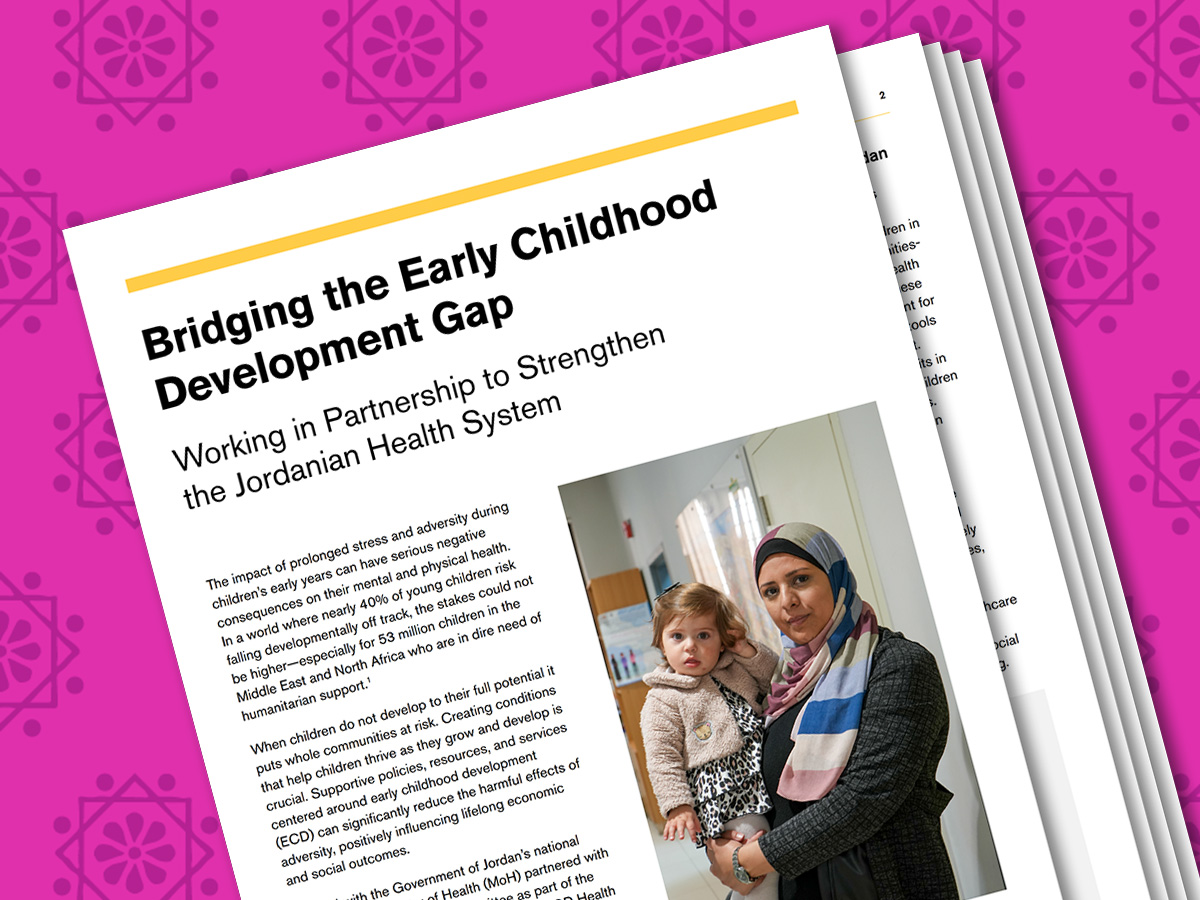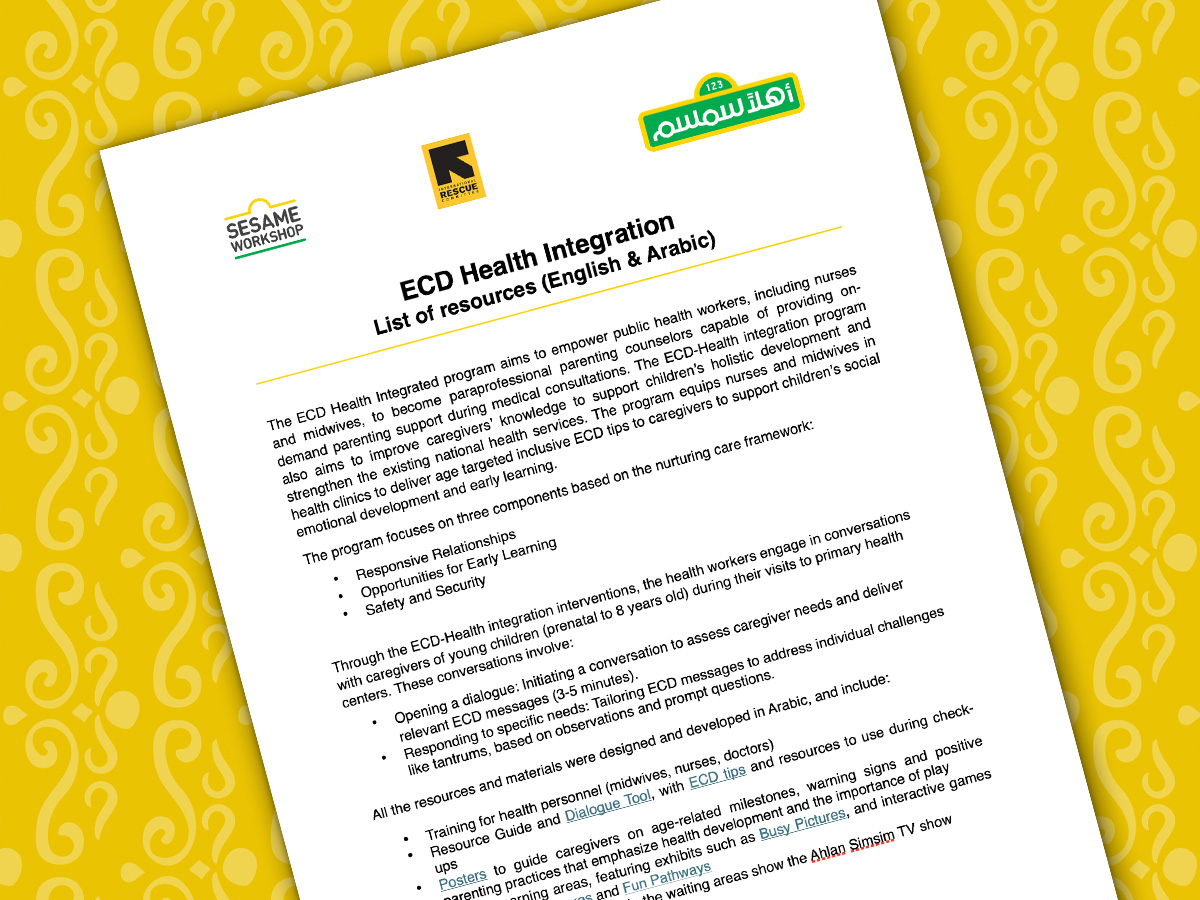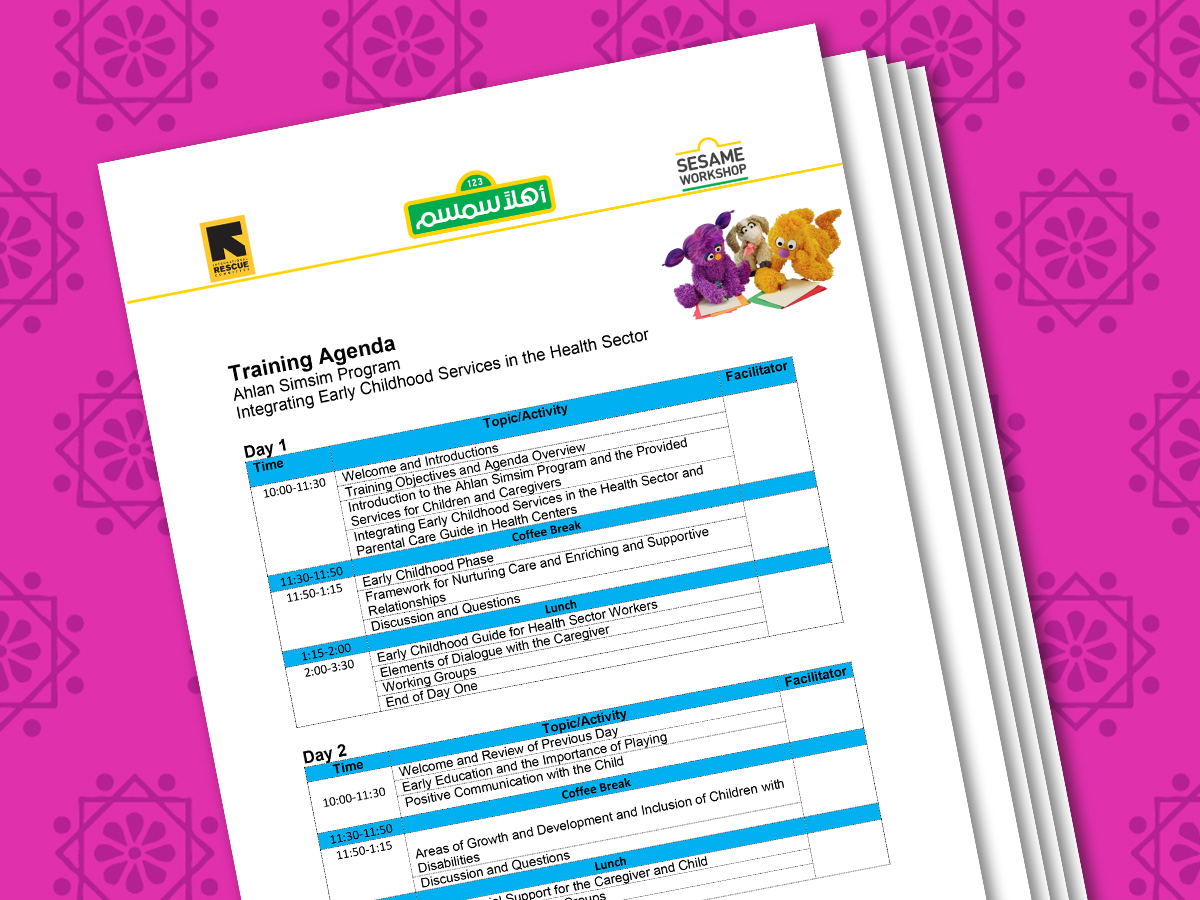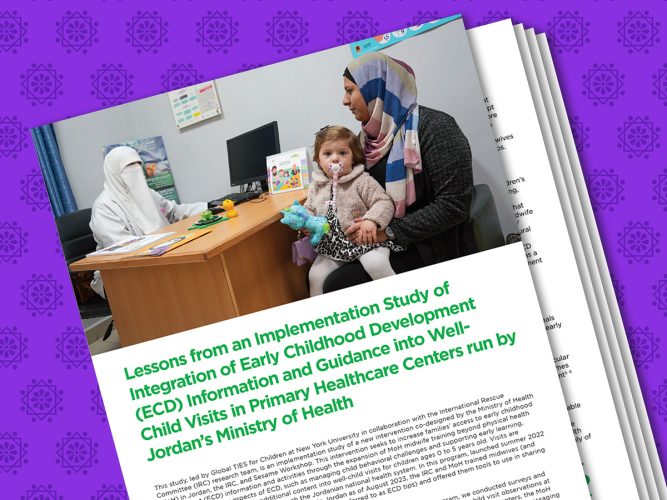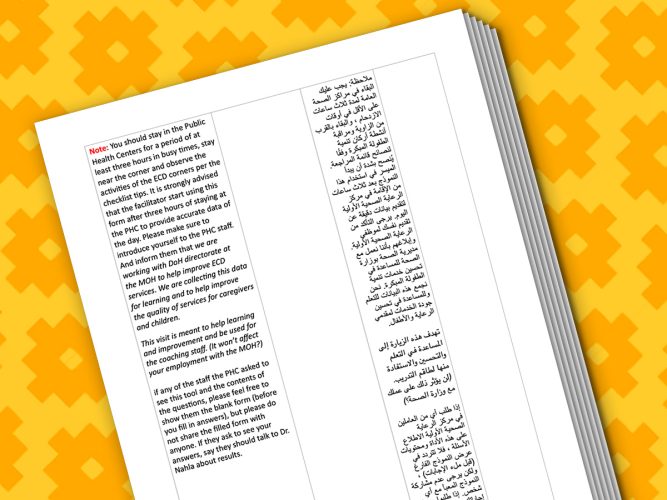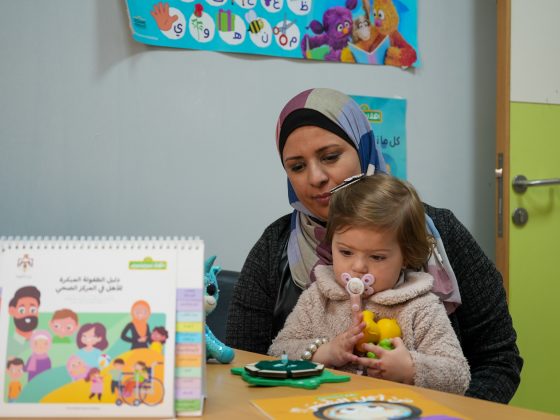
The Early Childhood Development (ECD)-Health Integration Program
Equipping health facilities and providers with resources on responsive caregiving and social-emotional development for caregivers of children ages 0 to 5.
The ECD-Health Integration Program aims to:
- Deliver culturally and contextually appropriate support services to caregivers.
- Encourage responsive relationships between caregivers and children
- Support early learning opportunities for children and promote family safety.
- Reach caregivers through sectors where they already seek services to provide comprehensive ECD support.
ECD Health Integration
Who we
worked with
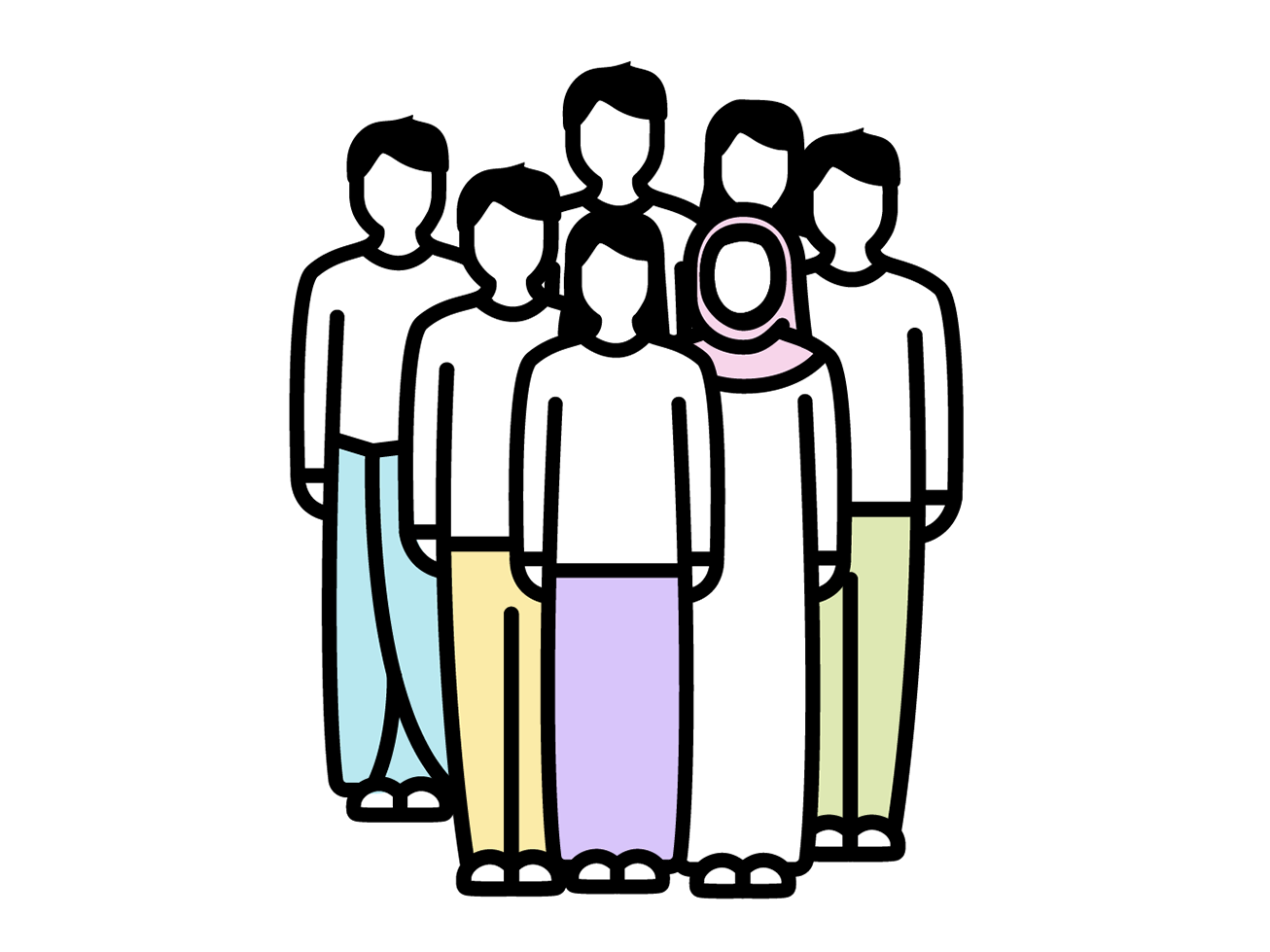
Caregivers of children
ages 0-5
Where we
worked
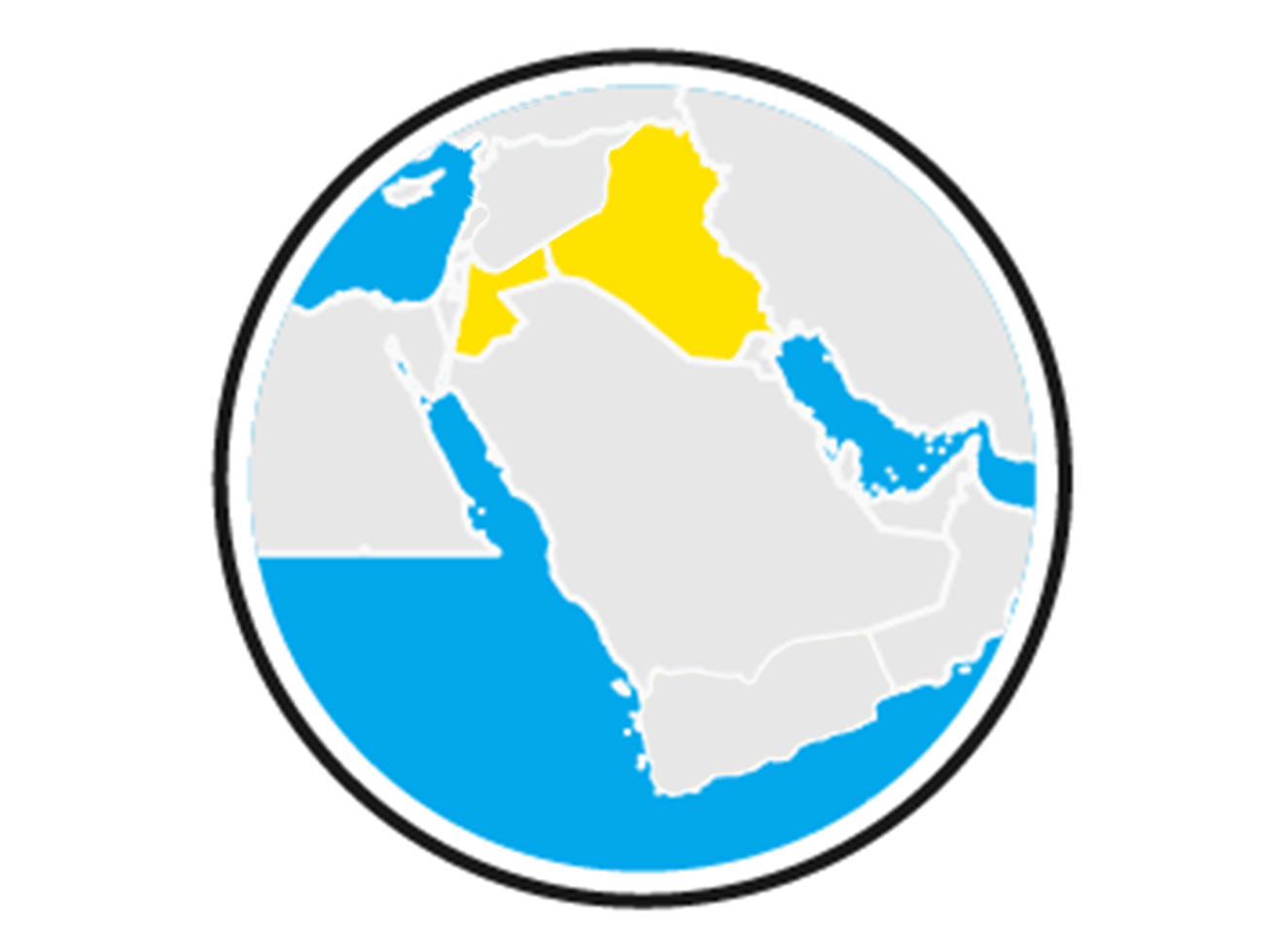
Iraq, Jordan
How we delivered programming
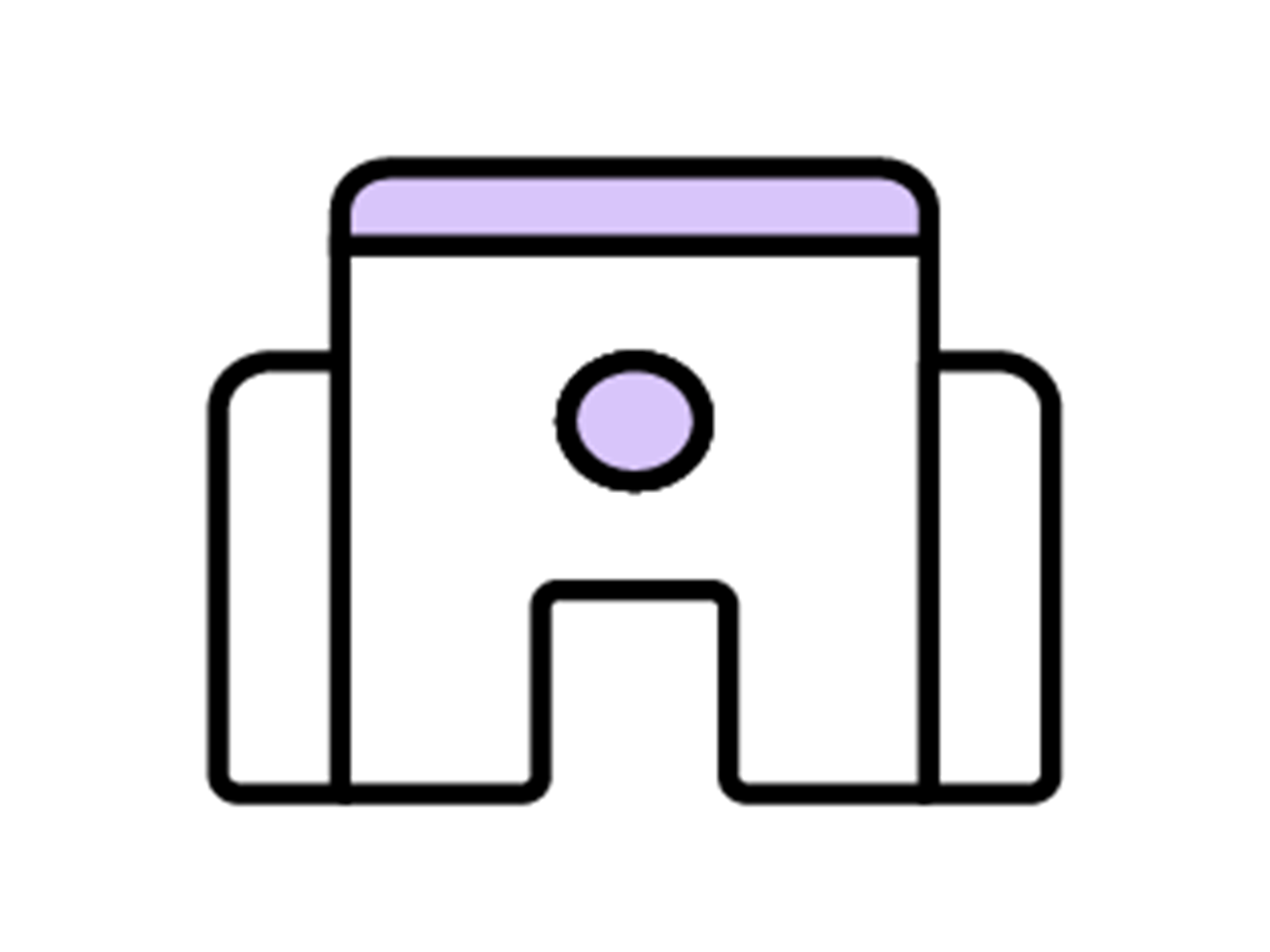
In person – facility
Midwives and nurses provide ECD information and tips to caregivers during a primary health consultation
Intensity/Frequency
.
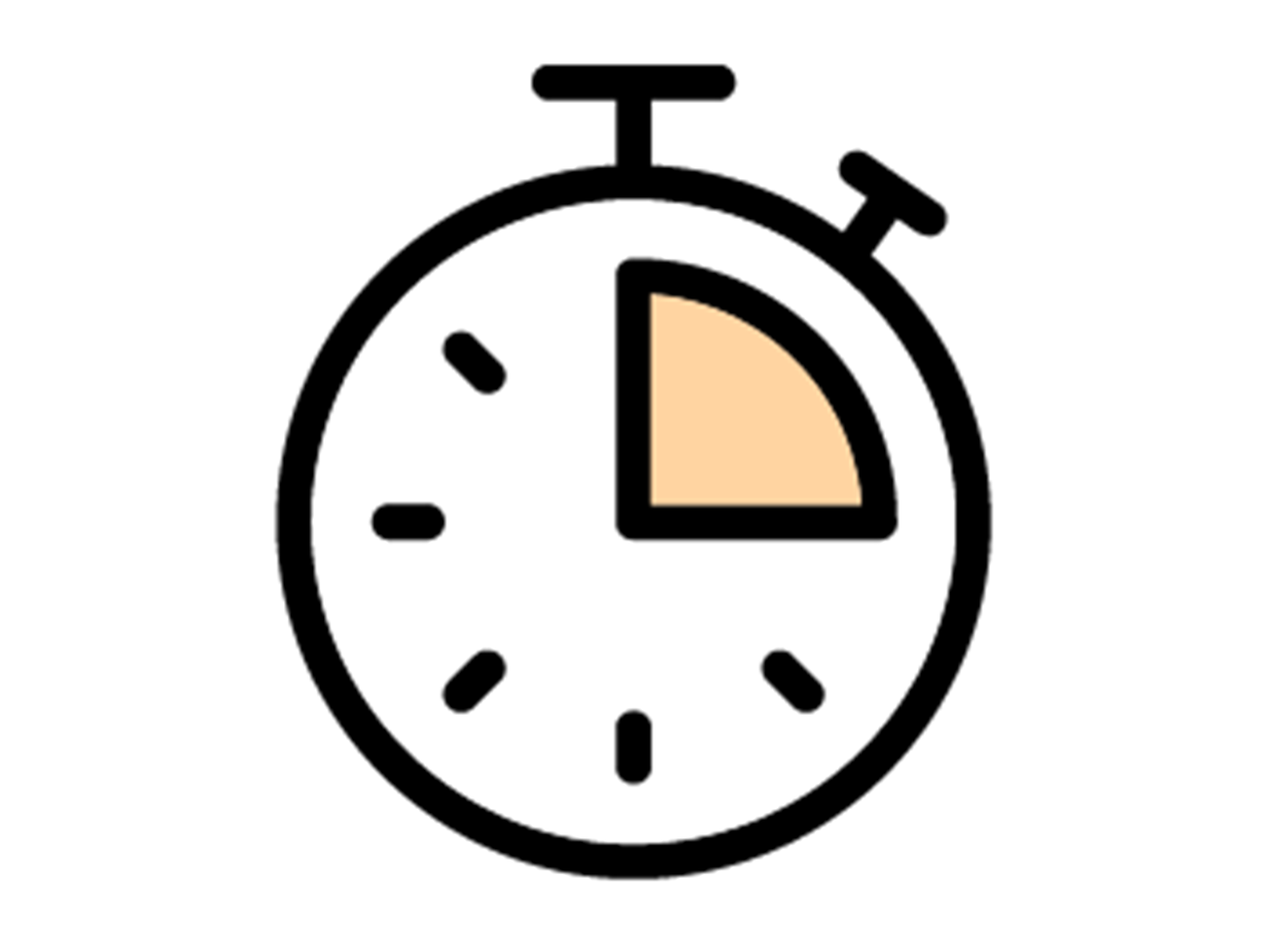
ECD Tips
ECD information and parenting tips integrated into well-child visits
Caregivers reported positive interactions with midwives who integrated ECD tips and tools into their practice.
However, direct observations yielded lower scores.
Caregivers Reported Positive Interactions with Midwives:

88% felt midwives listened well

86% reported midwives effectively responded to concerns about their child

50% remembered midwives providing useful parenting advice
Midwives Incorporated ECD Tips and Tools:

83% reported utilizing ECD and parenting information learned from Ahlan Simsim training in at least one well-child visit in the month before the survey

74% said they had employed the Ahlan Simsim dialogue tool during consultations

60% noted incorporating materials from Ahlan Simsim ECD playkit into their practice
7-28% of Visits
Midwives discussed child behavior or used Ahlan Simsim ECD materials at 7-28% of visits. However, distinguishing between existing MoH content and the ECD-Health Integration Program proved challenging.
Program Content and Delivery
The ECD-Health Integration Program aims to expand families’ access to ECD information by training midwives and nurses to go beyond physical health and nutrition. This training includes managing child behavioral challenges and supporting early learning, and incorporating these aspects into well-child visits.
Midwives receive resources in addition to the training, including ECD tips and resources they can use during check-ups, such as a resource guide and a dialogue tool to facilitate conversations with caregivers. They are also given posters to guide caregivers on age-related milestones, warning signs, relationship-building, and play-based activities. Playful learning areas have been established in health centers, featuring exhibits and showing the Ahlan Simsim TV show in waiting rooms wherever possible. Some nurses and Midwives have creatively adapted Ahlan Simsim program resources to suit their work styles. For example, one midwife organized ECD tips from the dialogue tool into labeled paper pockets on her walls for caregivers to read and take home. Another health worker displayed a framed “Tip of the Week” in her consultation room for caregivers to read during visits. These adaptations underscore the value of allowing creative flexibility within the system.
Training and Supervision
Health staff are required to participate in an intensive four-day in-person training prior to implementation. The training works to enhance the knowledge and skills of health staff, and help them to integrate the program into their daily routines to support the caregivers of young children. Annual refresher training sessions are conducted to ensure ongoing competence. In August 2023, the Jordanian Nursing Council confirmed the accreditation of the MoH-International Rescue Committee (IRC) co-developed ECD training as equivalent to six hours (out of the 50 required to renew one’s license) of Ministry-led mandatory training for all healthcare professionals.
Monitoring and Evaluation
The program utilizes existing registration tools employed by health center staff. In collaboration with the MoH in Jordan and Iraq, a joint monitoring and evaluation plan was developed. The co-designed plan incorporates various tools for monitoring the ECD-Health Integration Program, including an attendance tool, a feedback survey, field monitoring tool, and an educator post-test.
To assess the successes, challenges, and experiences of midwives and caregivers, Ahlan Simsim conducted a six-month implementation study from October 2022 to March 2023, led by New York University (NYU)’s Global TIES for Children and the IRC Jordan ECD research team. The study involved 19 health centers, 36 midwives, and 302 caregivers, and used observations of 148 well-child visits, surveys with leaders and providers, and interviews with both providers and caregivers.
Key findings indicated that structural barriers such as limited midwife time and high workload, along with cultural factors like trust issues and misinformation, hindered program implementation. Addressing these will require both structural and cultural adaptations to the programming and training.
Monitoring tools, research results and learnings dissemination
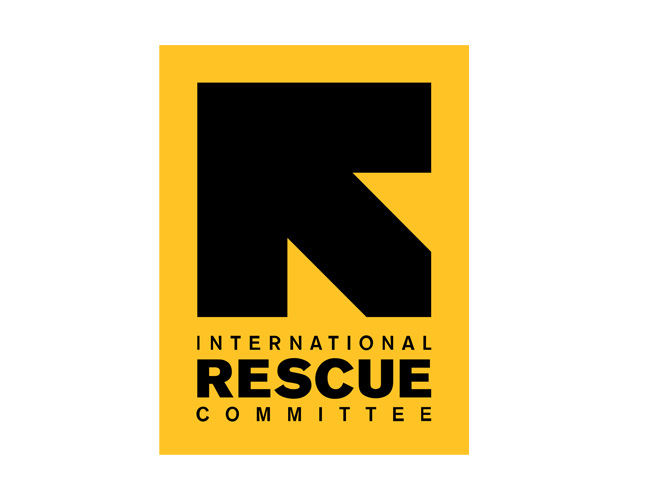
IRC
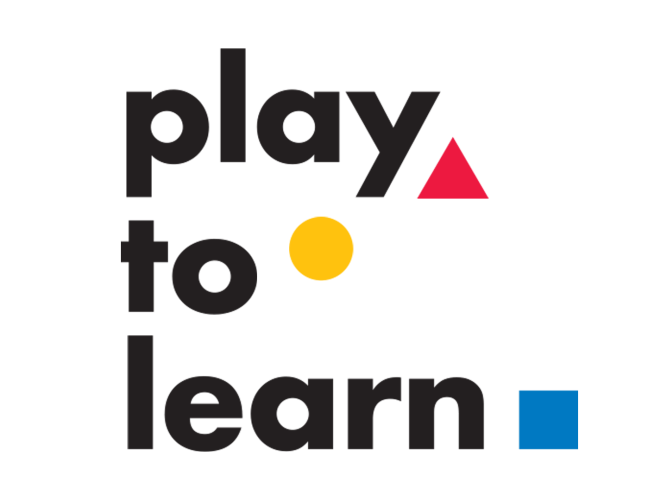
Play to Learn
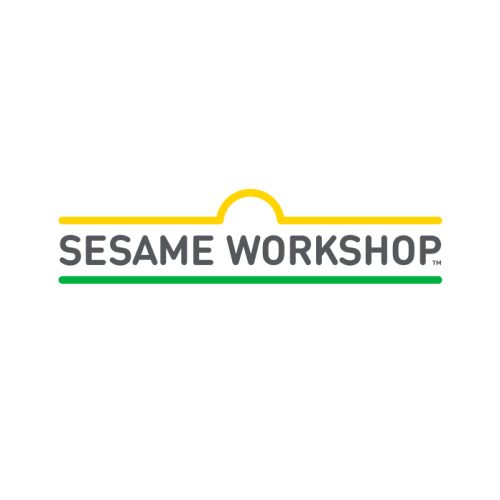
Sesame Workshop
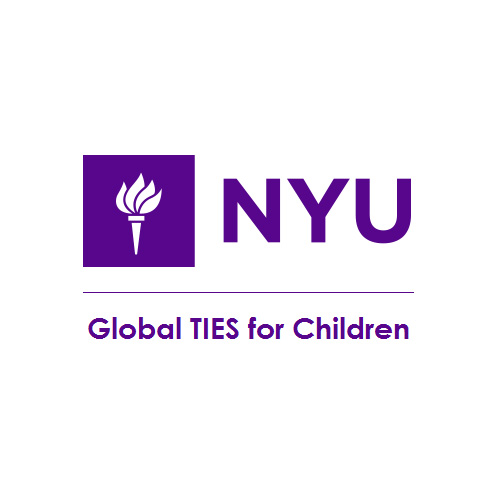
NYU
